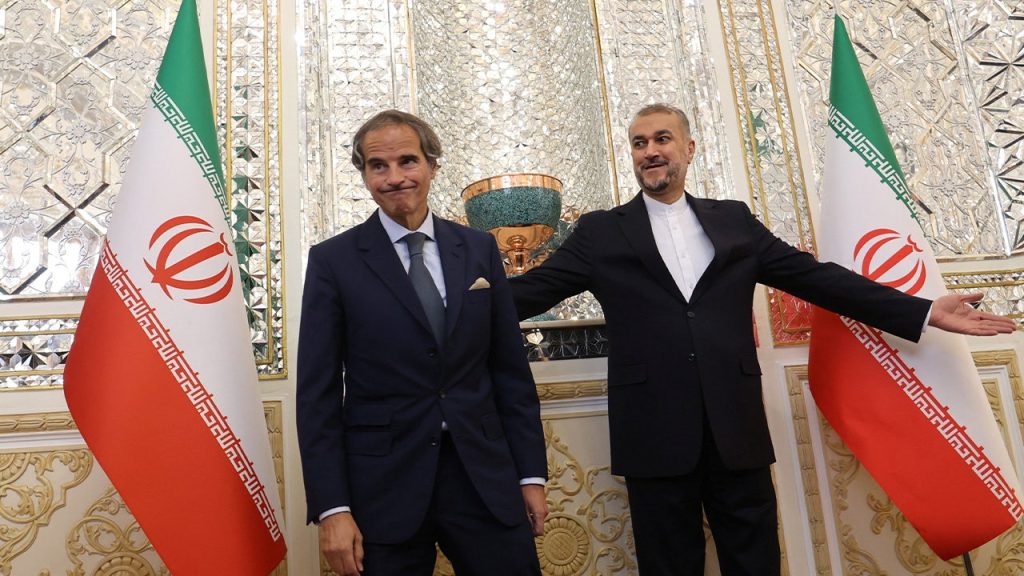Tensions between Iran and Israel have escalated as Tehran’s military has promised a crushing response to Israel’s strikes last month. The Director General of the International Atomic Energy Agency, Rafael Grossi, traveled to Iran this week to hold high-level meetings with Iranian officials regarding Iran’s nuclear safeguarding pledges. Despite international efforts to stall Iran’s nuclear program, Tehran continues to develop it, prompting Grossi to warn Israel against attacking Iran’s nuclear installations. Israeli Defense Minister Israel Katz has indicated that Iran is vulnerable to strikes on its nuclear facilities, but the White House has cautioned Israel against such actions. With the U.S. expected to take a hardline approach against Iran under the Trump administration, the situation remains tense and unpredictable.
Iran has shown resilience in the face of threats from both the U.S. and Israel, with top government and military officials vowing to retaliate against Israel’s attacks in late October. Commander-in-Chief of the Iranian Army Major General Seyyed Abdolrahim Mousavi has promised a crushing blow to Israel, echoing threats from Iran’s supreme leader Ayatollah Ali Khamenei. Deputy Commander of the Iranian Revolutionary Guard Ali Fadavi has also issued strong statements against Israel, declaring the downfall of the Zionist regime. These threats indicate that Iran is prepared to respond forcefully to any further aggression from Israel, raising concerns about the potential for further conflict in the region.
Israel has escalated its attacks on Iran-backed proxies like Hezbollah in Lebanon and the Islamic Jihad terrorist organization in Syria. The Israeli Defense Forces (IDF) have targeted militant positions in Beirut and Damascus, resulting in casualties on both sides. Lebanese Health Ministry reported casualties in Beirut, while Damascus also saw fatalities and injuries due to Israeli airstrikes. Senior Advisor to Khamenei Ali Larijani has visited Damascus and is scheduled to travel to Lebanon to discuss regional developments with high-ranking officials. The situation in the region remains volatile as both Iran and Israel continue to engage in military actions and exchange threats, raising concerns about a potential escalation into a broader conflict.
The U.N.’s atomic watchdog, Rafael Grossi, has issued warnings to both Iran and Israel in an effort to prevent a nuclear escalation. Grossi emphasized the importance of holding Iran accountable for its nuclear safeguarding pledges and urged Israel to refrain from attacking Iran’s nuclear installations. This comes at a critical moment as the U.S. is expected to adopt a more hardline approach against Iran under the Trump administration. As tensions between Iran and Israel persist, there is a growing risk of further conflict in the region, with both sides showing a willingness to retaliate against each other’s actions.
Grossi’s visit to Iran underscores the urgency of the situation and the need for diplomatic efforts to prevent a potential nuclear escalation. With Iran undeterred by threats from the U.S. and Israel, there is a growing concern about the possibility of further military confrontations in the region. As Iran continues to develop its nuclear program and Israel ramps up its attacks on Iran-backed proxies, the risk of conflict continues to escalate. The international community, including the U.N. and the U.S., must work to defuse tensions and prevent a full-blown crisis that could have devastating consequences for the region. Diplomatic initiatives and dialogue are essential to address the root causes of the conflict and find a peaceful resolution that ensures regional stability and security for all parties involved.


